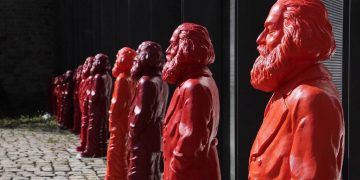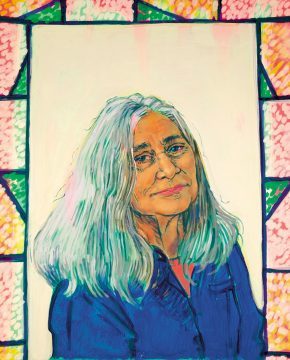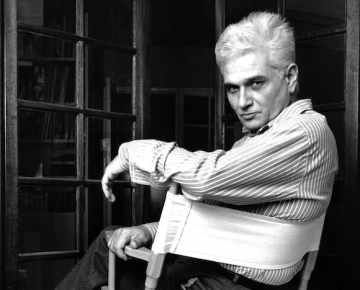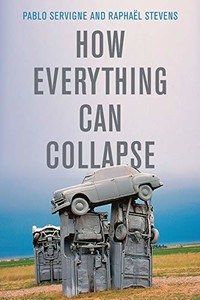Yanis Varoufakis in Project Syndicate:

The problem with egotists is that they are not particularly good at being selfish. They can accumulate wealth, legal rights, and power, but, in the end, they are pitiable figures who cannot know fulfillment. This assessment of the “egotistic man,” whom he defines as “an individual withdrawn behind his private interests and whim and separated from the community,” is the gravamen of Karl Marx’s critique of possessive individualism – the moral philosophy underpinning capitalism’s oeuvre.
As I read Shlomo Avineri’s exquisite recent biography of Marx, I became increasingly troubled by the image of an individual “separated from the community.” But the individual I was thinking about was Marx himself: the wandering revolutionary who, expelled from his native Germany and forced to leave Brussels and Paris, died, stateless, in liberal Victorian England. Suddenly, an inconvenient question occurred to me.
Why did I always find Shakespeare’s presentation of Shylock and Caliban particularly objectionable (in The Merchant of Venice and The Tempest, respectively)? Was it merely the identification of nastiness with a Jewish entrepreneur and a black man?
No, there was more to it.
More here.

 Penrose hails from one of the great intellectual dynasties of the 20th century. His father Lionel was a distinguished psychiatrist and geneticist, his uncle was the surrealist artist Roland Penrose. Roger was one of four children; older brother Oliver became a theoretical physicist, younger brother Jonathan was British chess champion a record-breaking 10 times, and sister Shirley Hodgson is a professor of cancer genetics.
Penrose hails from one of the great intellectual dynasties of the 20th century. His father Lionel was a distinguished psychiatrist and geneticist, his uncle was the surrealist artist Roland Penrose. Roger was one of four children; older brother Oliver became a theoretical physicist, younger brother Jonathan was British chess champion a record-breaking 10 times, and sister Shirley Hodgson is a professor of cancer genetics. According to copies of copies of fragments of ancient texts, Pythagoras in about 500 B.C. exhorted his followers: Don’t eat beans! Why he issued this prohibition is anybody’s guess (Aristotle thought he knew), but it doesn’t much matter because the idea never caught on. According to Joseph Henrich, some unknown early church fathers about a thousand years later promulgated the edict: Don’t marry your cousin! Why they did this is also unclear, but if Henrich is right — and he develops a fascinating case brimming with evidence — this prohibition changed the face of the world, by eventually creating societies and people that were WEIRD: Western, educated, industrialized, rich, democratic. In the argument put forward in this engagingly written, excellently organized and meticulously argued book, this simple rule triggered a cascade of changes, creating states to replace tribes, science to replace lore and law to replace custom. If you are reading this you are very probably WEIRD, and so are almost all of your friends and associates, but we are outliers on many psychological measures.
According to copies of copies of fragments of ancient texts, Pythagoras in about 500 B.C. exhorted his followers: Don’t eat beans! Why he issued this prohibition is anybody’s guess (Aristotle thought he knew), but it doesn’t much matter because the idea never caught on. According to Joseph Henrich, some unknown early church fathers about a thousand years later promulgated the edict: Don’t marry your cousin! Why they did this is also unclear, but if Henrich is right — and he develops a fascinating case brimming with evidence — this prohibition changed the face of the world, by eventually creating societies and people that were WEIRD: Western, educated, industrialized, rich, democratic. In the argument put forward in this engagingly written, excellently organized and meticulously argued book, this simple rule triggered a cascade of changes, creating states to replace tribes, science to replace lore and law to replace custom. If you are reading this you are very probably WEIRD, and so are almost all of your friends and associates, but we are outliers on many psychological measures.

 Jonathan Hopkin in Aeon:
Jonathan Hopkin in Aeon: Julian Baggini makes the case in Prospect:
Julian Baggini makes the case in Prospect: Neil Fligstein and Steven Vogel in Boston Review:
Neil Fligstein and Steven Vogel in Boston Review: America meant all sorts of things to Lawrence, many of them adumbrated in his Studies in Classic American Literature (1923). In The Bad Side of Books, there’s an essay called “Pan in America” (1924), which starts from the cry that echoed around the Mediterranean as paganism faded: “The Great God Pan is dead!” What that meant, according to Lawrence, was that the possibility of life lived in spontaneous unison with nature dwindled as commerce, technology, and metaphysical religion advanced. Pan seemed still alive to Lawrence in the Indians of the Southwest, and he conjured a graphic account of the animist mind and imagination. But even there, Pan was “dying fast”; every Indian, Lawrence thought, “will kill Pan with his own hands for the sake of a motor car.” Who, given the choice the essay poses—“to live among the living, or to run on wheels”—would choose what Lawrence called “life”? Pretty much no one, he thought, though he returned to this opposition again and again.
America meant all sorts of things to Lawrence, many of them adumbrated in his Studies in Classic American Literature (1923). In The Bad Side of Books, there’s an essay called “Pan in America” (1924), which starts from the cry that echoed around the Mediterranean as paganism faded: “The Great God Pan is dead!” What that meant, according to Lawrence, was that the possibility of life lived in spontaneous unison with nature dwindled as commerce, technology, and metaphysical religion advanced. Pan seemed still alive to Lawrence in the Indians of the Southwest, and he conjured a graphic account of the animist mind and imagination. But even there, Pan was “dying fast”; every Indian, Lawrence thought, “will kill Pan with his own hands for the sake of a motor car.” Who, given the choice the essay poses—“to live among the living, or to run on wheels”—would choose what Lawrence called “life”? Pretty much no one, he thought, though he returned to this opposition again and again. Somewhere within the storerooms of London’s staid, gray-faced Tate Gallery (for it’s currently no longer on exhibit) is an 1834 painting by J.M.W. Turner entitled “The Golden Bough.” Rendered in that painter’s characteristic sfumato of smeared light and smoky color, Turner’s composition depicts a scene from Virgil’s epic
Somewhere within the storerooms of London’s staid, gray-faced Tate Gallery (for it’s currently no longer on exhibit) is an 1834 painting by J.M.W. Turner entitled “The Golden Bough.” Rendered in that painter’s characteristic sfumato of smeared light and smoky color, Turner’s composition depicts a scene from Virgil’s epic  The election is 25 days away, and President Donald Trump’s political prognosis is not good. He’s
The election is 25 days away, and President Donald Trump’s political prognosis is not good. He’s  “UTOPIA HAS SUDDENLY changed camp,” write Pablo Servigne and Raphaël Stevens in How Everything Can Collapse: A Manual for Our Times, just out in an English translation by Andrew Brown. “Today, the utopian is whoever believes that everything can just keep going as before.” In 2015, when the book was first published in France, such a statement might have sounded alarmist. In 2020, Collapse feels positively prophetic. Things have not kept going as before, and it seems increasingly doubtful that they ever will again.
“UTOPIA HAS SUDDENLY changed camp,” write Pablo Servigne and Raphaël Stevens in How Everything Can Collapse: A Manual for Our Times, just out in an English translation by Andrew Brown. “Today, the utopian is whoever believes that everything can just keep going as before.” In 2015, when the book was first published in France, such a statement might have sounded alarmist. In 2020, Collapse feels positively prophetic. Things have not kept going as before, and it seems increasingly doubtful that they ever will again. Imagine a human society not so very different from our own, on which a cataclysm is about to fall. Thousands, perhaps millions, of people will die. Many others will lead shorter and less happy lives; the financial and human costs will be felt for decades, if not forever. Looking in from the outside, and thinking in terms of big ideas such as equality, justice, fairness, human rights and the rule of law, what kind of society would you want to emerge from this catastrophe? What core principles should lie at its heart?
Imagine a human society not so very different from our own, on which a cataclysm is about to fall. Thousands, perhaps millions, of people will die. Many others will lead shorter and less happy lives; the financial and human costs will be felt for decades, if not forever. Looking in from the outside, and thinking in terms of big ideas such as equality, justice, fairness, human rights and the rule of law, what kind of society would you want to emerge from this catastrophe? What core principles should lie at its heart?